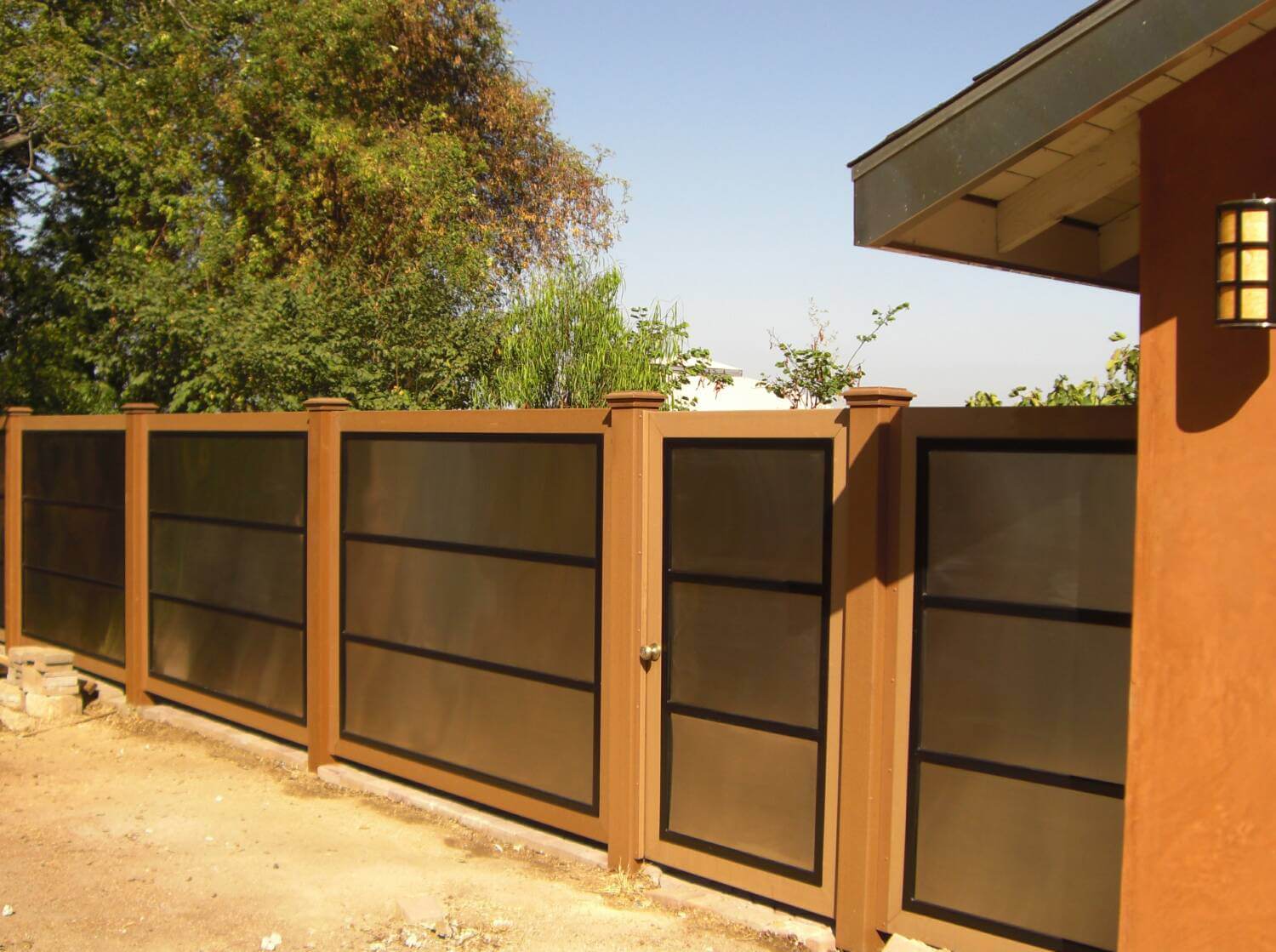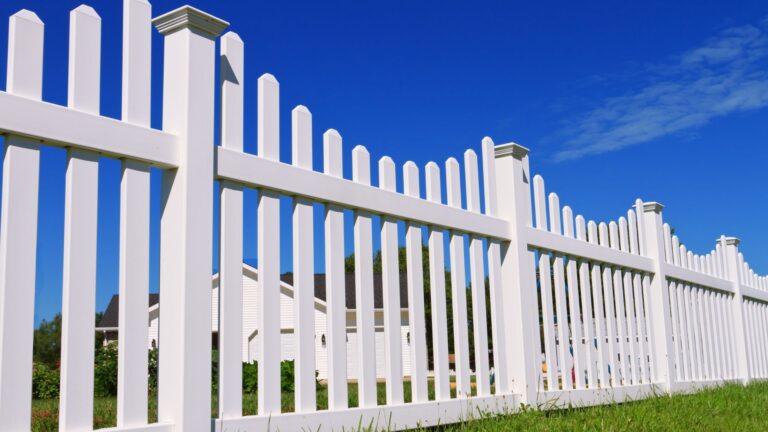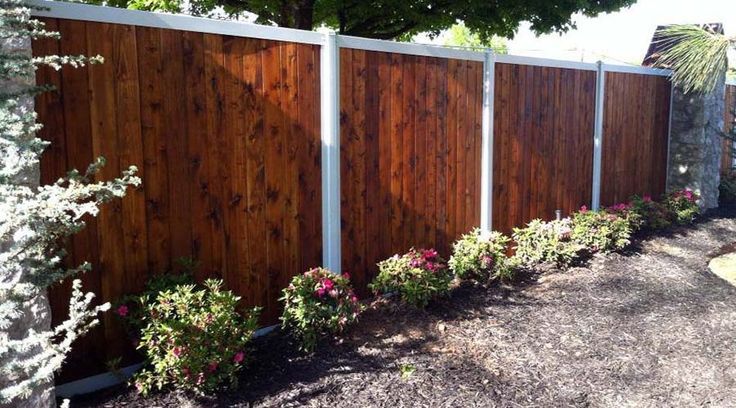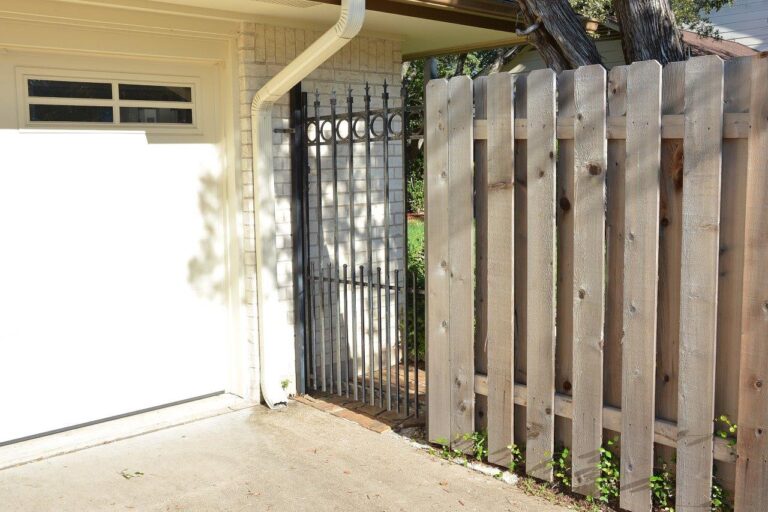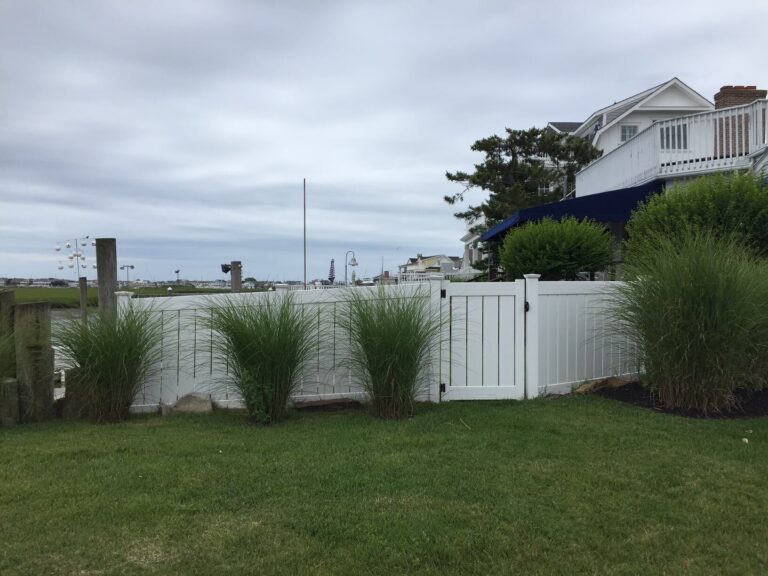Composite privacy fencing offers low maintenance and durability, but it may be more expensive than other options. It is resistant to rot, insects, and weather, providing a long-lasting solution for privacy and security.
Composite fencing also comes in various styles, designs, and colors to complement any outdoor space.
Additionally, it is eco-friendly, as it is often made from recycled materials. However, composite privacy fencing can be costly upfront and may not offer the same level of privacy as traditional wood fencing.
It also requires professional installation, which can add to the overall expense.
With these factors in mind, homeowners should carefully weigh the pros and cons of composite privacy fencing to make an informed decision for their property.
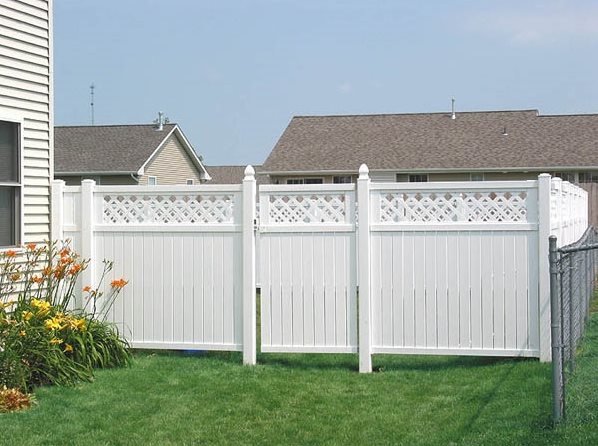
Understanding Composite Privacy Fencing
When it comes to enhancing the privacy of your property, investing in composite privacy fencing can be a sustainable and visually appealing option.
To make an informed decision on composite privacy fencing, consider key aspects like definition, materials, durability, and lifespan for your outdoor space.
Request Your Free Estimate to explore the possibilities for upgrading your property with this innovative fencing solution.
Definition Of Composite Privacy Fencing
Composite privacy fencing is a type of fencing constructed using a blend of wood fibers, polymers, and other recycled materials.
The combination of these elements results in a durable and low-maintenance fencing option that offers both privacy and aesthetic appeal.
Composite privacy fencing is designed to mimic the look of traditional wood fencing, providing a natural appearance while also offering the benefits of modern materials.
Materials Used For Composite Privacy Fencing
The materials used in composite privacy fencing typically include recycled wood and plastic components, allowing for a sustainable and eco-friendly fencing solution.
These materials are often combined using advanced manufacturing processes to produce fence panels that are resistant to rot, decay, and insect damage.
Additionally, the use of recycled materials in composite privacy fencing contributes to environmental conservation and reduces the demand for new lumber.
Durability And Lifespan Considerations
Durability is a key advantage of composite privacy fencing, as it is engineered to withstand harsh weather conditions, UV exposure, and temperature fluctuations without warping or cracking.
The lifespan of composite privacy fencing is notably longer than traditional wood fencing, requiring minimal maintenance and preserving its visual appeal over time.
With proper installation and care, composite privacy fencing can offer a durable and long-lasting privacy solution for residential and commercial properties.
The Pros And Cons Of Composite Privacy Fencing
When considering privacy fencing for your property, composite materials have become an increasingly popular choice due to their durability and low-maintenance qualities.
However, like any fencing material, composite privacy fencing has its own set of pros and cons that are important to consider before making a decision.
Let’s explore the advantages and disadvantages of composite privacy fencing.
Advantages Of Composite Privacy Fencing
Low maintenance: Composite privacy fencing requires minimal maintenance compared to traditional wood fencing. It does not require staining, painting, or sealing, making it an attractive option for homeowners with busy schedules.
Environmental friendliness: Composite materials typically consist of recycled plastics and wood fibers, making them an eco-friendly choice for homeowners who prioritize sustainability.
Aesthetic appeal: With a range of colors and styles available, composite privacy fencing can enhance the visual appeal of your property while providing privacy and security.
Disadvantages Of Composite Privacy Fencing
Cost considerations: Composite privacy fencing tends to have a higher upfront cost compared to traditional wood fencing, which may require additional budget planning.
Installation challenges: Due to the weight and specific installation requirements of composite materials, professional installation may be necessary and could add to the overall cost.
Long-term maintenance requirements: While composite fencing is low-maintenance, it may require occasional cleaning to preserve its appearance over time, especially in areas prone to mold or mildew.
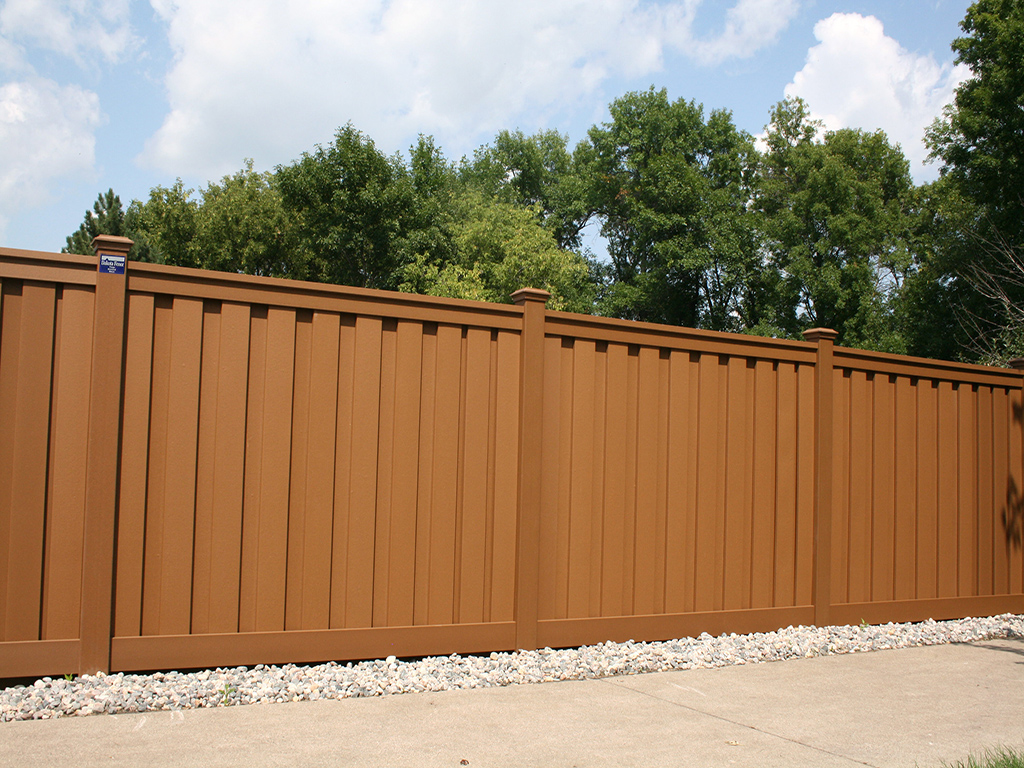
Frequently Asked Questions
What Are The Disadvantages Of Composite Fencing?
The disadvantages of composite fencing include limited color options, the potential for warping or fading, and higher initial costs. Maintenance may also be required.
Is Composite Fencing A Good Idea?
Composite fencing is a good idea due to its durability, low maintenance, and eco-friendly nature.
It provides a long-lasting alternative to traditional wood fencing and comes in various styles and colors to suit different preferences.
With resistance to rot, insects, and fading, composite fencing is an excellent choice for many homeowners.
What Is The Life Expectancy Of Composite Fencing?
Composite fencing typically has a life expectancy of 20-30 years. It’s durable and low-maintenance, making it a popular choice.
Conclusion
In sum, composite privacy fencing presents a durable and low-maintenance option for property owners. Its eco-friendly nature and resistance to rot and pests are definite advantages.
However, the initial cost and limited design options may deter some individuals. Overall, weighing the pros and cons is essential for informed decision-making.

